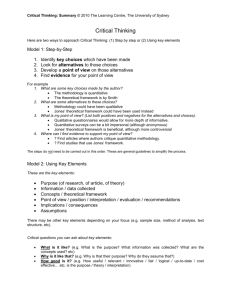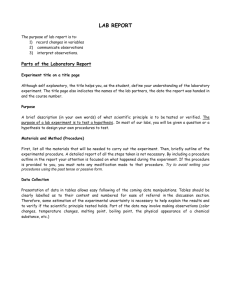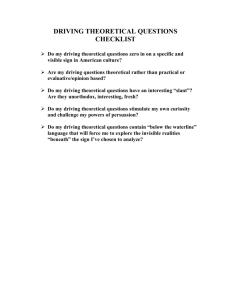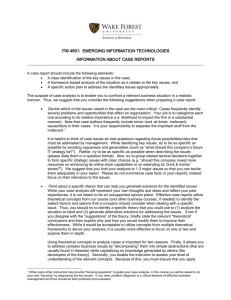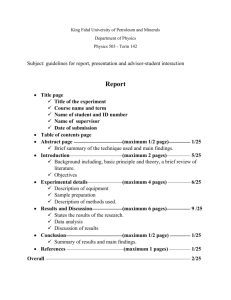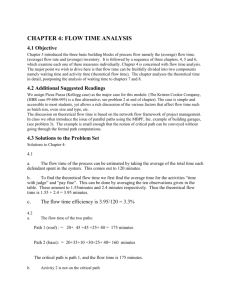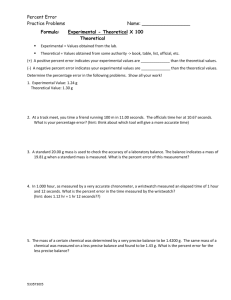Post-Development Concepts? Buen Vivir, Ubuntu and Degrowth
advertisement
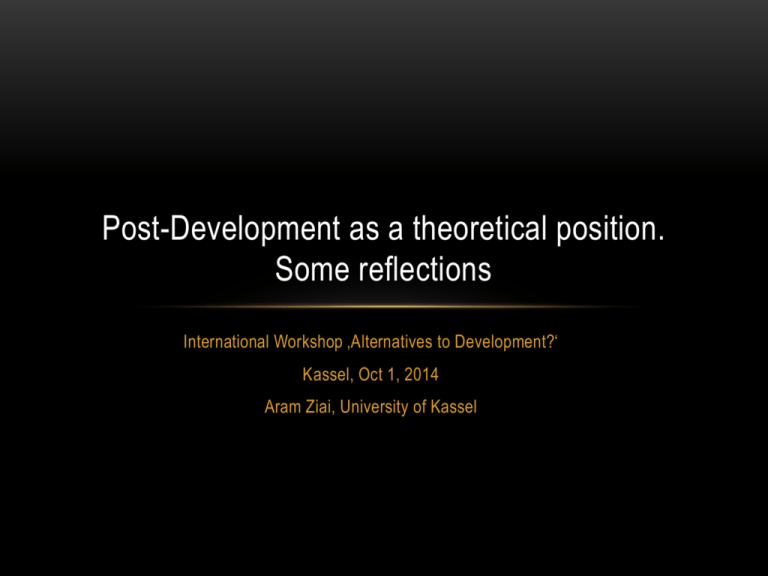
Post-Development as a theoretical position. Some reflections International Workshop ‚Alternatives to Development?‘ Kassel, Oct 1, 2014 Aram Ziai, University of Kassel OVERVIEW • Post-Development • Alternatives to what? • Theoretical debate • Conclusion ARAM ZIAI: PD AS A THEORETICAL POSITION Oct 1 2014 2 POST-DEVELOPMENT • ‘The age of development … is coming to an end. The time is ripe to write its obituary.’ (Sachs 1992: 1) • ‘’From the unburied corpse of development, every kind of pest has start to spread.’ (Esteva 1992: 6) PD had come to lay to rest the concept of ‘development’ • WHY? ARAM ZIAI: PD AS A THEORETICAL POSITION Oct 1 2014 3 POST-DEVELOPMENT Era of ‘development’ is ending because - Industrialized countries can no longer be seen as examples at the top of the evolutionary scale for ecological reasons - ‘Development’ came into being as an ideological promise in the Cold War and has become redundant after the downfall of the Soviet bloc - Promise of ‘development’ is not credible anymore in the light of the growing gap between rich and poor - Its program of Westernizing the world seems less and less desirable to people in the global South => Post-Development era: ‘alternatives to development’ in movements and communities in the South ARAM ZIAI: PD AS A THEORETICAL POSITION Oct 1 2014 4 POST-DEVELOPMENT Characteristics of PD-concepts according to Escobar: - Alternatives to development, rejection of the entire paradigm - Local culture and knowledge, defense of cultural difference - Critical stance towards science - Defense and promotion of pluralistic grassroots movements - Critique of economic growth, homo economicus and economics ARAM ZIAI: PD AS A THEORETICAL POSITION Oct 1 2014 5 ALTERNATIVES TO WHAT? - ‘Development’ as Western ideology ‘[D]evelopment ... was an ideology that was born and refined in the North, mainly to meet the needs of the dominant powers in search of a more ‘appropriate’ tool for their economic and geopolitical expansion. ... the ideology helped a dying and obsolete colonialism to transform itself into an aggressive - even sometimes an attractive instrument able to recapture new ground.’ (Rahnema 1997b: 379) => ‘Development’ as Western deceiving promise of affluence to decolonizing states in order to maintain neo-colonial economic relations and contain communism ARAM ZIAI: PD AS A THEORETICAL POSITION Oct 1 2014 6 ALTERNATIVES TO WHAT? - ‘Development’ as failed project ‘The three ‘development decades’ were a huge, irresponsible experiment that, in the experience of a world-majority, failed miserably. … Development promises enrichment, and for the overwhelming majority has always meant the progressive modernization of their poverty: growing dependence on guidance and management’ (Esteva 1985: 78f, see also 1991: 76). => ‘Development’ as the failed attempt to universalize the Western model of society and transform Third World societies in this image through exporting capital and knowledge ARAM ZIAI: PD AS A THEORETICAL POSITION Oct 1 2014 7 ALTERNATIVES TO WHAT? - ‘Development’ as hierarchic and Eurocentric construct ‘As a discourse, development is (…) articulated around an artificial construct (underdevelopment) and upon a certain materiality (the conditions baptized as underdevelopment)... the exercise of power over the Third World [is] made possible by this discursive homogenization (which entails the erasure of the complexity and diversity..., so that a squatter in Mexico City, a Nepalese peasant, and a Tuareg Nomad become equivalent to each other as poor and underdeveloped.’ (Escobar 1995: 53) => ‘Development’ as the categorization of societies according to universal and measurable indicators of European origin neglecting different values on what a good life looks like ARAM ZIAI: PD AS A THEORETICAL POSITION Oct 1 2014 8 ALTERNATIVES TO WHAT? - ‘Development’ as a depoliticizing construct ‘By uncompromisingly reducing poverty to a technical problem, and by promising technical solutions to the sufferings of the powerless and oppressed people, the hegemonic problematic of „development“ is the principal means through which the question of poverty is de-politicized in the world today.’ (Ferguson 1994: 255) => ‘Development’ as a frame for perceiving and explaining inequality without references to political and economic conflicts and relations of power, limiting the solution to technocratic projects and programmes ARAM ZIAI: PD AS A THEORETICAL POSITION Oct 1 2014 9 ALTERNATIVES TO WHAT? - ‘Development’ as economization and dis-valuing ‘... the social construction of development was married to a political design: excising from society and culture an autonomous sphere, the economic sphere, and installing it at the centre of politics and ethics. … Economization and colonization were synonymous. … As a conceptual construction, economics strives to subordinate to its rule and to subsume under its logic every other form of social interaction in every society it invades. … Establishing economic value requires the disvaluing of all other forms of social existence.’ (Esteva 1992: 19f) => ‘Development’ as capitalist rationality of homo oeconomicus, dis-valuing noncommodified practices and knowledge and assuming infinite needs ARAM ZIAI: PD AS A THEORETICAL POSITION Oct 1 2014 10 ALTERNATIVES TO WHAT? - ‘Development’ as legitimation of domination and violence ‘In the name of science and development one can today demand enormous sacrifices from, and inflict immense sufferings on, the ordinary citizen.’ ‘Societies could impose today virtually any suffering on any number of their people in the name of development, exactly as in earlier times, under the guidance of experts in the matter of the soul, witches were killed so that their souls could be saved.’ ‘The idea of development has as its underside the memories of the violence and exploitation that went with the early phases of development in the West, and the idea includes the message that the underdeveloped world should make similar blood sacrifices to develop.’ ( Nandy 1988: 1, 1992: 139, 1995: 13) => ‘Development’ as legitimation for interventions into the lives of others defined as backward in the name of the greater common good ARAM ZIAI: PD AS A THEORETICAL POSITION Oct 1 2014 11 ALTERNATIVES TO WHAT? So what are we referring to exactly? How would a world beyond ‘development’ look like? - No ideological promises of affluence - No ineffective development aid - No capitalism - No Eurocentric scale of superior and inferior societies - No depoliticization of inequality - No interventions against the will of the people ARAM ZIAI: PD AS A THEORETICAL POSITION Oct 1 2014 12 THEORETICAL DEBATE Step 1: Identifying PD How do we define ‘Post-Development Concepts and Practices’? Suggestion: alternative (non-Western) (or rather: counter-hegemonic) models of: - Politics (beyond nation-states, liberal democracy, competing parties, elected representatives, free mandate) - Economy (beyond capitalism, growth, wage labour, commodification of nature, industrialized production for the market, philosophy of homo oeconomicus) - Knowledge (beyond universal positivist science, separation of subject and object, of fact and value, of human beings and nature, lack of spirituality) - Improving livelihoods (beyond dev aid, dev projects, expert knowledge, trusteeship) => In which respects can concepts and practices in fact be seen as PD? ARAM ZIAI: PD AS A THEORETICAL POSITION Oct 1 2014 13 THEORETICAL DEBATE Step 2: Analysing PD, a) neo-populist vs. skeptical PD (anti-dev/post-dev) Neo-populist PD Skeptical PD Complete rejection of modernity and dev aid Some elements are useful, hybridization Romanticisation of cultural traditions and local communities Critical towards cultural traditions (gender issues!) Cultures as static entities (relativism!), promoting return Cultures as dynamic, promoting hybridization Promoting subsistence agriculture and rejection of Western culture Avoidance of blueprints, pluriverse => Right to cultural difference and autonomy against western universalism and the development project => Right to cultural difference and autonomy against western universalism and any other form of trusteeship and domination ARAM ZIAI: PD AS A THEORETICAL POSITION Oct 1 2014 14 THEORETICAL DEBATE Step 2: Analysing PD, b) engaging the criticisms - Are PD practices actually preferred to the others, or are they the only ones available (PD as second-best solution, Western model still as goal) (Storey)? Is adherence to PD thus rather a pragmatic rather than an ideological question? - Are PD concepts used as an elite ideology highlighting cultural conflicts and sidelining political and economic conflicts (Nanda)? ARAM ZIAI: PD AS A THEORETICAL POSITION Oct 1 2014 15 THEORETICAL DEBATE Step 2: Analysing PD, c) using PD criticism on PD Do PD concepts and practices exhibit the characteristics criticized in ‘development’? - Does PD function as an ideology of ruling elites? - Does PD deliver on its promises? - Is PD based on a universal scale homogenizing differences? - Does PD depoliticize relations of inequality? - Does PD dis-value other practices and knowledge? - Does PD legitimize authoritarian interventions? If the criticisms point to a progressive direction, these questions can serve to examine the circumstances under which PD alternatives are in fact empowering. ARAM ZIAI: PD AS A THEORETICAL POSITION Oct 1 2014 16 CONCLUSION Research questions: - in what respect can the alternatives to ‘development’ in Bolivia, South Africa, Iran and Ghana (and Germany) be seen as PD concepts and practices? - under which circumstances does Post-Development become a progressive or an reactionary force? ARAM ZIAI: PD AS A THEORETICAL POSITION Oct 1 2014 17
